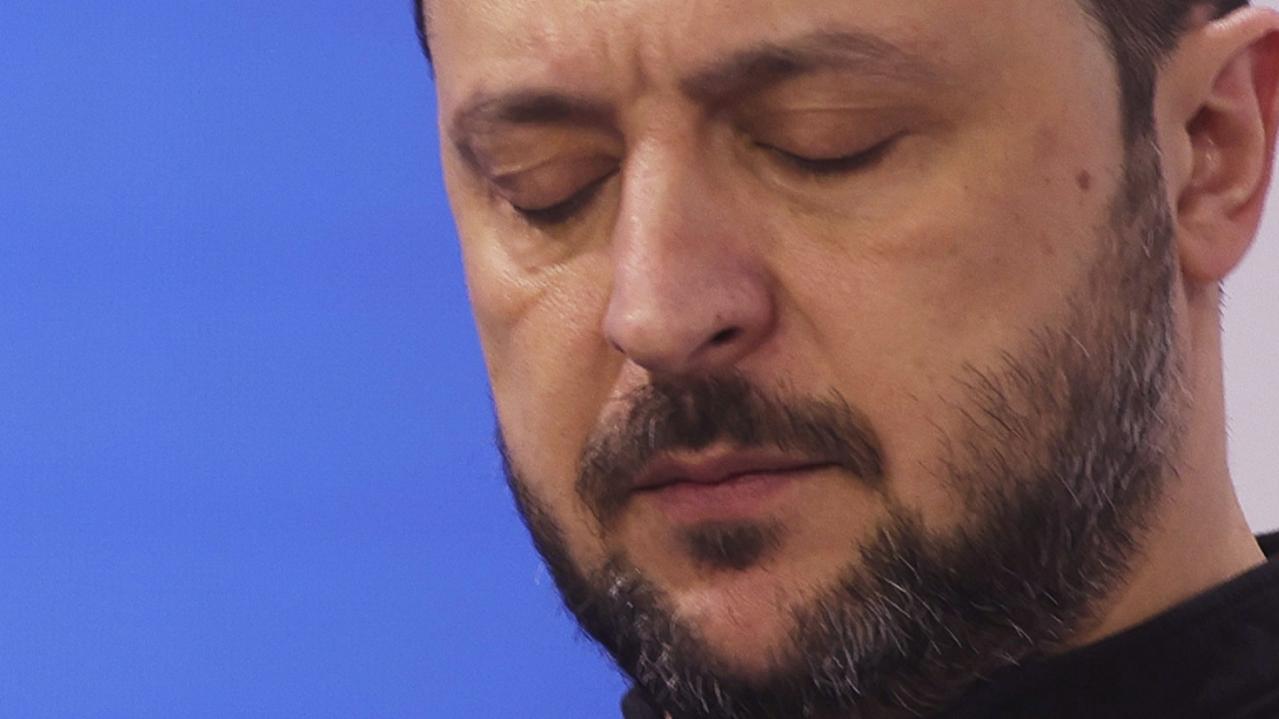India celebrates as Chandrayaan-3 spacecraft lands on the moon
India has staked a new claim as a national superpower in space, landing its Chandrayaan-3 mission safely on the moon’s unexplored and rugged south pole.
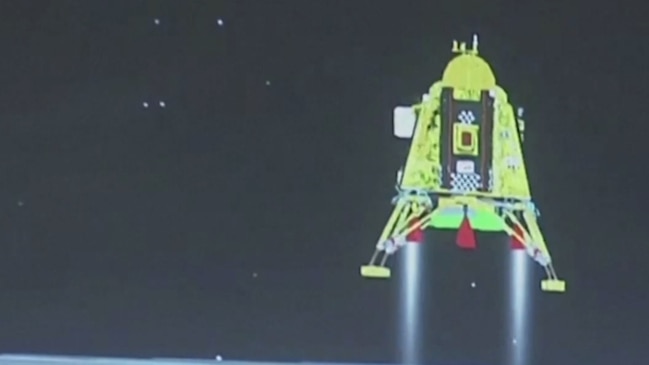
World
Don't miss out on the headlines from World. Followed categories will be added to My News.
An Indian spacecraft has landed on the rugged, unexplored south pole of the moon in a mission seen as crucial to lunar exploration and India’s standing as a space power, just days after a similar Russian lander crashed.
“This moment is unforgettable. It is phenomenal. India is now on the moon. This is a victory cry of a new India,” said Prime Minister Narendra Modi, who waved the Indian flag as he watched the landing from South Africa where he is attending a BRICS summit.
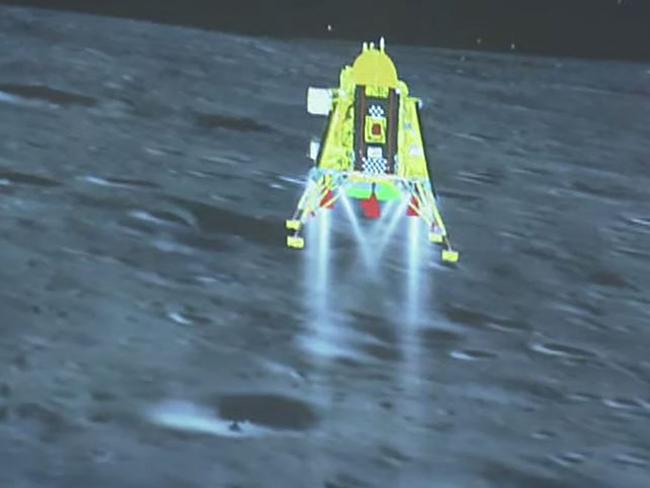
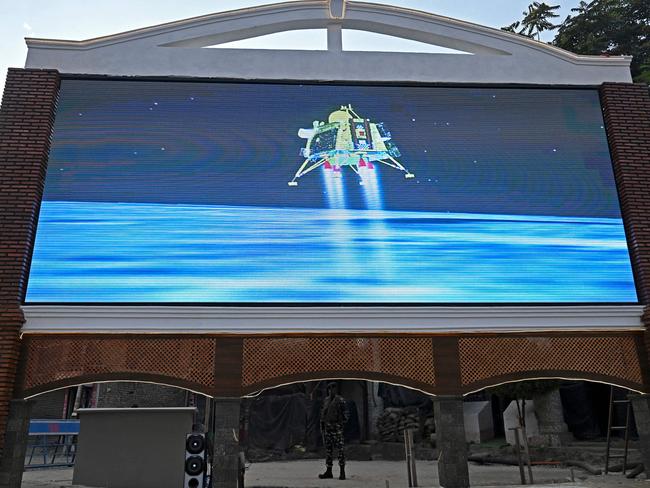
“This is the heartbeat of 1.4 billion people. This is the new India, the new beginning, the new thinking of the new efforts.
“This is a feature of the shine of India – we made a promise and we made it true on the surface of the moon.
“This is a historic moment, and for every Indian, we are all very proud.”
India made history by becoming the first nation to land near the moon’s South Pole with its Chandrayaan-3 craft.
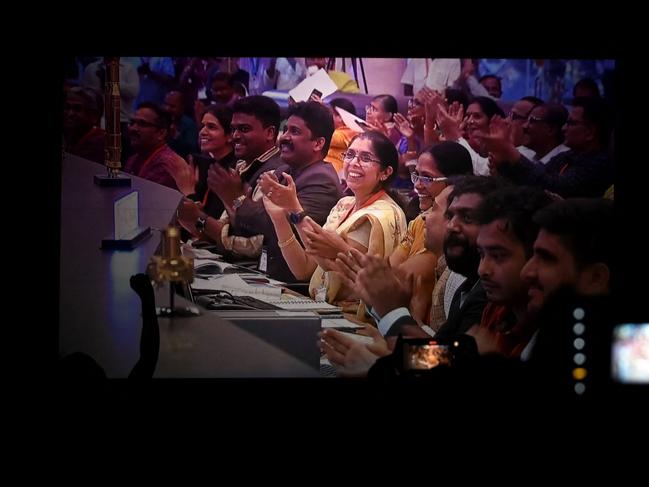
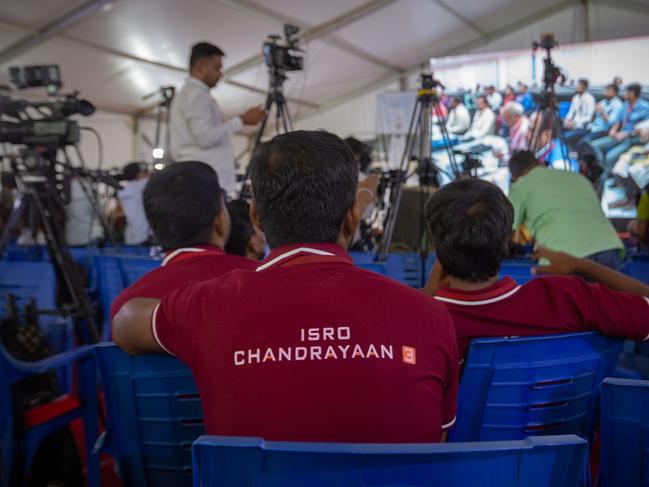
Scientists and officials clapped, cheered and hugged each other as the spacecraft landed and people across India broke out in celebration, setting off firecrackers and dancing in the streets.
“India is on the moon,” said S. Somanath, chief of the Indian Space Research Organisation (ISRO) as the Chandrayaan-3 spacecraft landed, making India the fourth nation to successfully land a spacecraft on the moon after the United States, China and Russia.
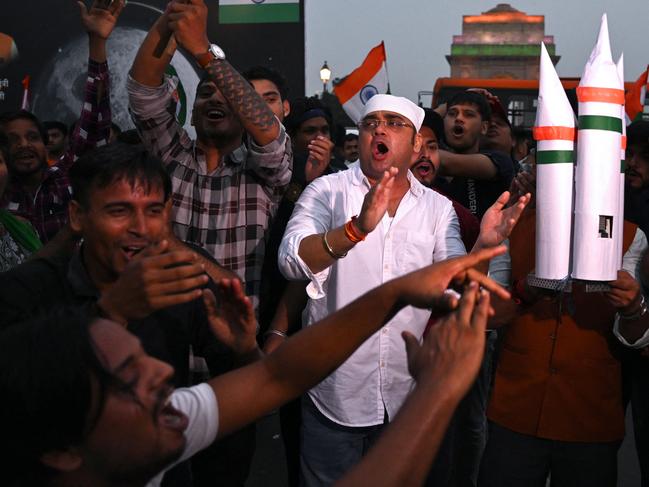
But none of those countries have led successful missions to the lunar south pole.
This was India’s second attempt to land a spacecraft on the moon and comes less than a week after Russia’s Luna-25 mission failed. People across the country were glued to television screens and said prayers as the spacecraft approached the surface.
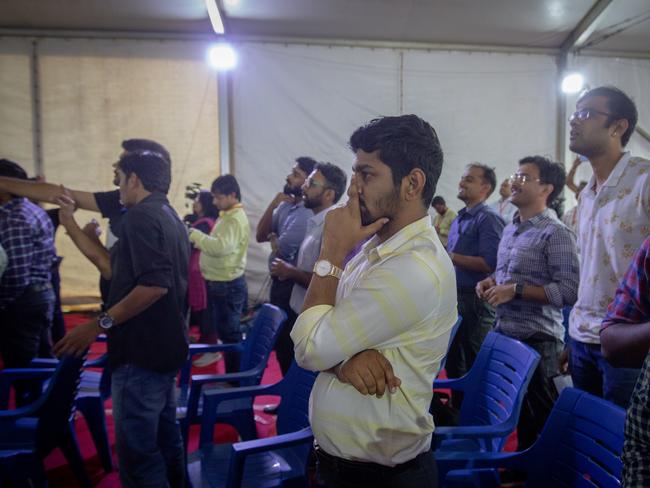
Nearly seven million watched the YouTube live stream.
Chandrayaan means “moon vehicle” in Hindi and Sanskrit. In 2019, ISRO’s Chandrayaan-2 mission successfully deployed an orbiter but its lander crashed
The Chandrayaan-3, which means “mooncraft” in Sanskrit, launched on July 14 and entered lunar orbit on August 5 carrying the Vikram lander.
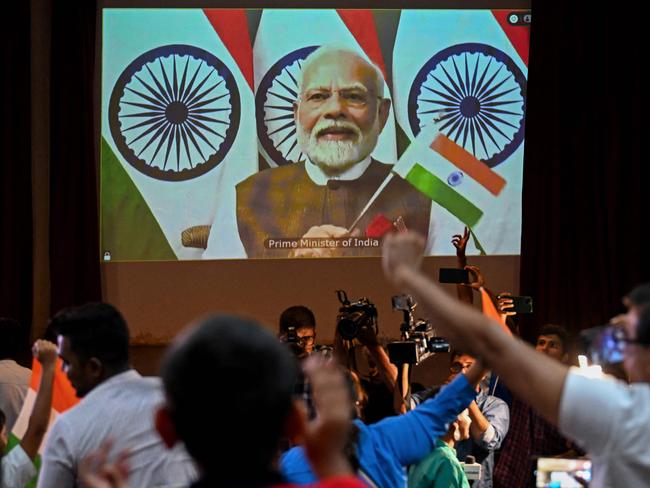
Scientists lost contact with the second moon module moments before its planned landing.
Chandrayaan-2 wasn’t a complete failure, however, as it sent an orbiter to the moon – which remains active today – before its explosive demise.
But space chiefs say they learnt a lot from the mission.
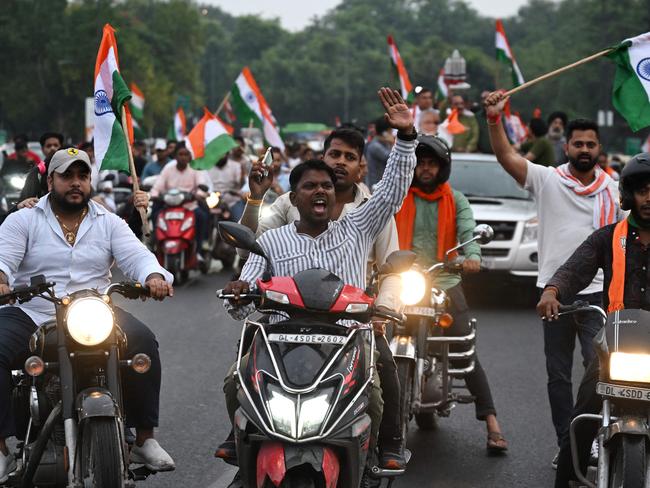
Former Indian space chief K Sivan told AFP that Chandrayaan-3’s last photos transmitted back to earth suggested the voyage would be successful.
The Indian Space Research Organisation (ISRO) had made corrections after the failure of four years ago, Sivan added.
“Chandrayaan-3 is going to go with more ruggedness,” he said.
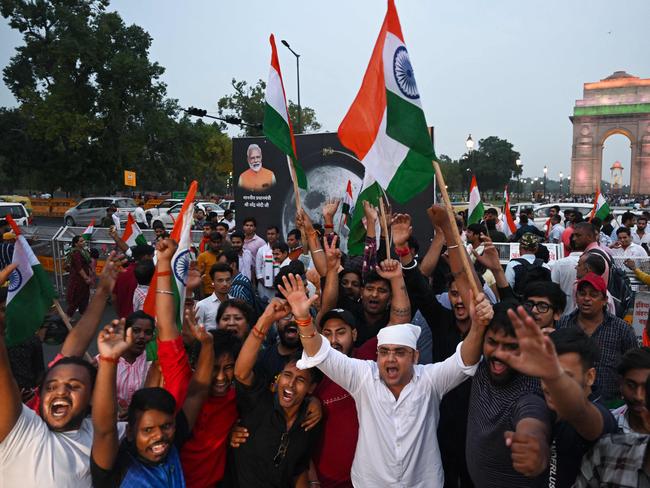
While Mr Sivan spoke of “ruggedness” prior to the landing attempt, scientists fired just two engines to steadily manoeuvre the spacecraft toward the lunar surface, in the final moments before onlookers erupted in cheer.
Russia’s space agency Roskosmos congratulated India on the landing.
“Roskosmos congratulates Indian colleagues on the successful landing of the Chandrayaan-3 spacecraft,” it said in a post on its Telegram channel.
“Exploration of the moon is important for all mankind. In the future it may become a platform for deep space exploration.”
Scientists said the landing will allow India to become a bigger player on cooperative missions going forward.
The Chandrayaan-3 is expected to remain functional for two weeks, running a series of experiments including a spectrometer analysis of the mineral composition of the lunar surface.
Originally published as India celebrates as Chandrayaan-3 spacecraft lands on the moon



